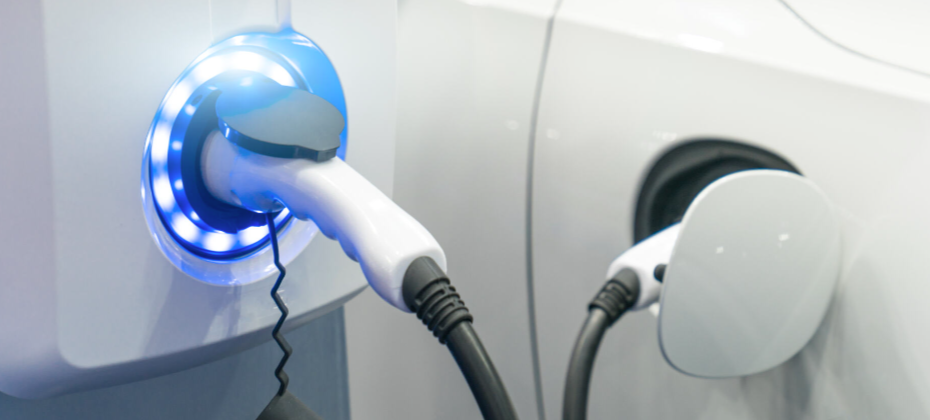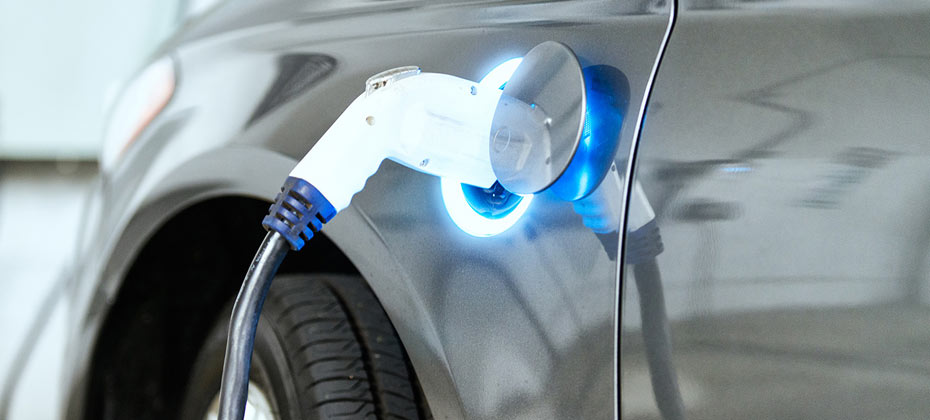Tag: EV registrations

While the dynamics of the electric vehicle (EV) market continue to drive headlines, recent data reveals that although EV registrations remain steady, hybrids are becoming a practical bridge between gas-powered vehicles and EVs. Experian’s Automotive Consumer Trends Report: Q2 2025 found EVs accounted for 9.2% of new retail registrations, down from 10.5% in Q2 2024, and gas-powered vehicles declined from 73.7% to 71.9% year-over-year. Meanwhile, hybrids jumped from 15.8% to 18.9% in the same time frame. Digging a bit deeper, one of the most telling insights from the data was the apparent transition that consumers make when returning to the market for another vehicle purchase. The data shows that as consumers become familiar with alternative fuel types, some “graduate” into more electrified vehicles. For example, nearly 13% of gas-powered vehicle owners replaced their vehicle with a hybrid (10.8% for hybrids and 2.0% for plug-in hybrids [PHEV], respectively). Meanwhile, 52.2 % of hybrid owners returned to the market to purchase another hybrid and 5.0% returned to purchase a PHEV. Further along in the electrified vehicle funnel, we’re seeing 11.0% of PHEV owners returning to market to purchase a hybrid, while 31.7% returned to purchase another PHEV and 22.2% purchase an EV. Most EV households are not exclusively electric Data in the second quarter of this year found 80% of EV-owning households also have a gas-powered vehicle and 14.9% also own a hybrid, demonstrating that consumers are looking for ways to accommodate their diverse driving needs. While the interest in EVs remains strong, many consumers still rely on more traditional fuel types for various reasons. Though, hybrids are notably becoming a middle ground solution as they offer fuel efficiency without the other concerns that can accompany an EV. As alternative fuel types continue to create a household name in the automotive industry, hybrids are starting to play a notable role in the transition to electrification. Data from this quarter not only shows that consumers are experimenting with alternative fuel types, but they’re also integrating them into multi-vehicle households. With their growing popularity reflects a pragmatic approach to balancing the latest innovation with everyday practicality, hybrids may be the key steppingstone that brings mainstream consumers closer to the electrified space. To learn more about alternative fuel type insights, view the full Automotive Consumer Trends Report: Q2 2025 presentation.

Electric vehicle (EV) registrations are re-gaining momentum as a wave of more affordable models hit the market, pushing more consumers than ever to make the transition. According to Experian’s State of the Automotive Finance Market Report: Q3 2024, EVs made up 10.1% of new vehicle financing this quarter, increasing more than 30% from last year. Furthermore, 45% of EV consumers leased their vehicle in Q3 2024—resulting in EVs accounting for 17.3% of all new vehicle leasing. Of the top five transacted EV models this quarter, Tesla accounted for three—with the Tesla Model Y leading at 31.8%, followed by the Tesla Model 3 (14.3%) and Tesla Cybertruck (4.9%). Rounding out the top five were the Ford Mustang Mach-E (3.9%) and Hyundai IONIQ 5 (3.7%). Interestingly, data in the third quarter of 2024 found that consumers’ financing decisions vary based on the EV model they’re looking at. For example, 76.5% of consumers purchased the Tesla Model Y with a loan and 13.1% opted for a lease; on the other hand, only 8.5% of consumers bought the Hyundai IONIQ 5 with a loan and 78.7% chose to lease. Despite the rising interest in leasing as more incentives and rebate programs roll out, some consumers still prefer to purchase their EV with a loan. Understanding financing patterns based on different models is key for professionals as they cater to the diverse preferences and determine the long-term viability of certain EVs and their potential for leasing renewals. Snapshot of the overall vehicle finance market As the finance market continues to stabilize, it’s notable that the average interest rate for a new vehicle fell year-over-year, going from 7.1% to 6.6%, respectively. However, average new vehicle loan amounts increased $736 from last year, reaching $41,068 in Q3 2024, and average monthly payments went from $732 to $737 in the same time frame. On the used side, average interest rates saw a slight uptick to 11.7% in Q3 2024, from 11.6% last year. Meanwhile, the average loan amount dropped from $1,195 over the last year to $26,091 this quarter and the average monthly payment declined from $538 to $520 year-over-year. With the overall market shifting and EVs re-sparking interest, automotive professionals should leverage how consumers are purchasing their vehicles based on average payments and the fuel type as more incentives are being offered. Monitoring these insights can unlock opportunities for tailored financing solutions that meet the needs of consumers as preferences continue to evolve. To learn more about automotive finance trends, view the full State of the Automotive Finance Market: Q3 2024 presentation on demand.

Electric vehicles (EVs) are sustaining prominence throughout the automotive industry, and data from the second quarter of 2023 shows registrations are still on the rise. According to Experian’s Automotive Consumer Trends Report: Q2 2023, 7.50% of new vehicle registrations were EVs, resulting in more than 2.7 million EVs in operation in the US, an increase from the approximate 1.7 million this time last year. Though, despite the continued growth in EV popularity, data found that 85% of EV owners also have a gas-powered vehicle in their household garage and 11% have a hybrid vehicle. It’s possible that majority of consumers prefer to have a secondary vehicle for comfortability, considering charging stations aren’t as accessible in some states and gas operated vehicles offer more miles. That said, it’s important for automotive professionals to have additional insight when helping consumers find a vehicle that fits their lifestyle, such as if they have plans to keep another vehicle in addition to their EV and the type of vehicle they’re interested in. Luxury EVs dominate market share When looking at new EV registrations by vehicle class in the last 12 months, luxury EVs accounted for 77.73%, while non-luxury made up the remaining 22.67%. It’s notable that Tesla led the luxury EV registration market share in Q2 2023 at 81.61%, followed by BMW at 4.42%, Rivian at 3.76%, Mercedes-Benz at 3.27%, and Audi coming in at 2.52%. For non-luxury EVs, Chevrolet accounted for 24.21% of new registration market share this quarter and Ford was not far behind at 24.00%, followed by Volkswagen at 15.77%, Hyundai at 15.22%, and Kia at 9.17%. Breaking the data down further, Tesla made up four of the top five models for luxury EVs in Q2 2023, which explains the dominance in overall luxury EV market share. This quarter, the Model Y came in at 47.36%, followed by the Model 3 at 27.30%, the Model X (4.42%), the BMW i4 (2.82%), and the Model S (2.53%). Meanwhile, the Chevrolet Bolt EUV accounted for 17.67% of the non-luxury EV market share in Q2 2023 and the Volkswagen ID.4 came in second at 15.77%, followed closely by the Ford Mustang Mach-E at 15.74%, and the Hyundai IONIQ 5 at 11.13%. Despite Tesla comprising the majority of luxury EV market share, something professionals should keep in mind is other OEMs making their way into the market, which will give consumers more models to choose from as the gas alternative vehicles continue to grow in popularity. This will be important data to leverage in years to come when helping a consumer find a vehicle. To learn more about EV insights, view the full Automotive Consumer Trends Report: Q2 2023 presentation.

New EV registrations have increased almost 60% since this time last year—and while gasoline vehicles continue to dominate the market, data shows new gasoline registration volumes are dropping year-over-year.

According to Experian’s Automotive Consumer Trends Report: Q2 2022, EVs comprised more than 1.7 million vehicles in operation throughout the US, quite a jump from more than 400,000 EVs just five years ago in Q2 2018.